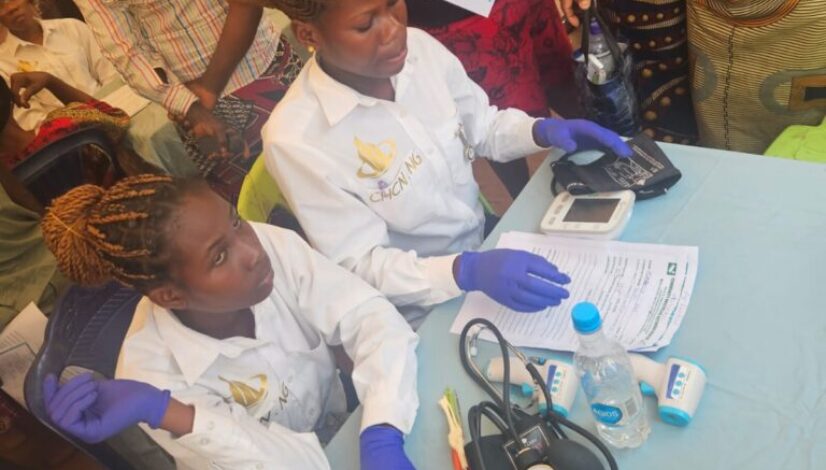At the Nmasinachi Foundation, we have always believed that healthcare is a basic human need. Thus, the Nmasinachi Medical Outreach Program stands as a testament to the power of community-driven healthcare initiatives, funded of course, by you.
Conducted in the beautiful and bustling city of Owerri, Imo State, this program showcases how a well-planned and executed outreach can transform lives, foster hope, and address critical health needs in underserved populations. This article will explore the goals, target audience, implementation strategies, and key outcomes of this particularly successful initiative.
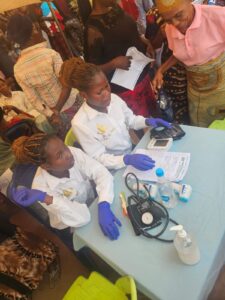
Goals of the Nmasinachi Medical Outreach Program
At its core, the Nmasinachi Medical Outreach Program aimed to bridge the gap in access to quality healthcare services, especially for vulnerable groups in Owerri. The overarching objectives included:
Providing free medical consultations and treatments for common illnesses and ailments.
Raising awareness about preventable diseases through health education sessions.
Screening for chronic conditions such as hypertension, diabetes, and malaria to promote early detection and management.
Empowering the community with knowledge about proper hygiene, nutrition, and lifestyle practices to improve overall well-being.
Enhancing trust between healthcare providers and the local community, thereby encouraging sustained health-seeking behavior.
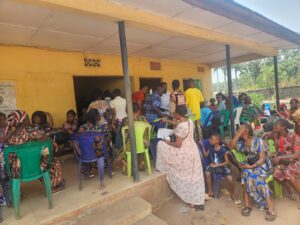
Target Audience
The outreach program was designed to be inclusive, addressing the diverse healthcare needs of the population. The primary target groups included:
Women: Given their role as caregivers, women were provided with maternal health education, family planning services, and screenings for conditions like cervical and breast cancer.
Children: Pediatric care was a cornerstone of the program, with immunization drives, nutritional assessments, and treatments for common childhood illnesses.
Men: Recognizing the unique health challenges faced by men, the program offered screenings for conditions such as prostate health and hypertension, along with general medical consultations.
Elderly individuals: Special attention was given to age-related conditions, including arthritis, vision impairments, and diabetes management.
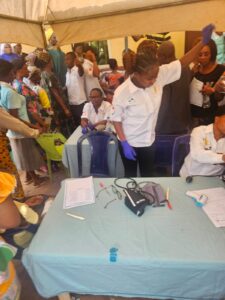
Implementation Strategies
The success of the Nmasinachi Medical Outreach Program can be attributed to meticulous planning and execution. Some of the implementation strategies included:
Community Engagement: The program leveraged local leaders, churches, and community groups to raise awareness and encourage participation.
Collaboration with Healthcare Professionals: A multidisciplinary team of doctors, nurses, pharmacists, and volunteers was assembled to ensure comprehensive service delivery.
Mobile Clinics: Temporary healthcare stations were set up in accessible locations across Owerri, reducing barriers to care.
Health Education Workshops: Interactive sessions were conducted to empower attendees with practical knowledge about disease prevention and healthy living.
Partnerships: The program collaborated with local and international organizations to secure funding, medical supplies, and technical support.
Data Collection: Health records were meticulously documented to identify trends and areas requiring follow-up.
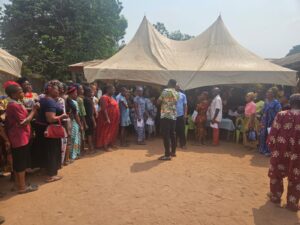
Key Outcomes
The impact of the Nmasinachi Medical Outreach Program was profound and far-reaching. Some of the notable achievements include:
High Turnout: Hundreds of residents attended the outreach, reflecting the program’s successful community mobilization efforts.
Improved Health Literacy: Participants learned about preventing common illnesses and managing chronic conditions.
Early Diagnosis: Dozens of cases of hypertension, diabetes, and other conditions were identified and referred for follow-up care.
Enhanced Community Trust: The program fostered a sense of trust and collaboration between healthcare providers and the community.
Sustained Impact: The program laid the groundwork for lasting health improvements by equipping individuals with knowledge and resources.
Conclusion
The Nmasinachi Medical Outreach Program in Owerri, Imo State, serves as a model for how targeted healthcare initiatives can make a significant difference in underserved communities. By addressing immediate health needs, promoting preventive care, and building trust, the program not only improved the well-being of participants but also inspired hope for a healthier future. As similar programs are replicated in other regions, the lessons learned from Nmasinachi’s success can serve as a blueprint for impactful and sustainable medical outreach initiatives.

